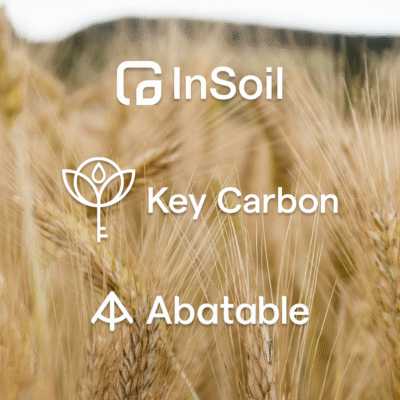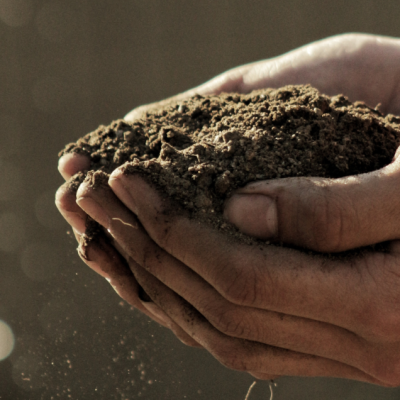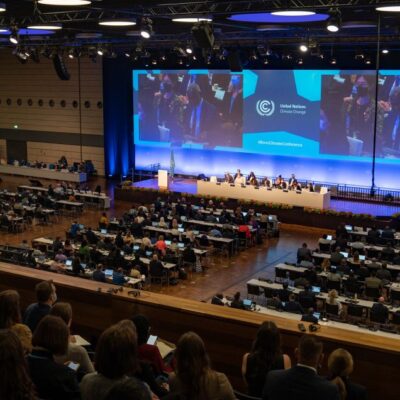This blog is part of our series highlighting the high-impact climate action projects sourced by Abatable for the Olympic and Paralympic Games Paris 2024. The projects were chosen to maximise the Games’ global impact by addressing climate change while contributing to the UN Sustainable Development Goals. Here, we focus on the Kenya Cookstoves Project, a transformative initiative that is making significant strides toward energy efficiency, reducing carbon emissions, and empowering communities across Kenya.

The urgent need for change in Kenya
Just 7% of Kenya’s land is covered by forest. As one of the least-forested countries in Sub-Saharan Africa, its rate of deforestation is alarming, with the country losing approximately 103,400 hectares of forest annually, according to Kenya’s Ministry of Environment and Forestry. At the same time, 70% of Kenya’s population relies on biomass, namely firewood and charcoal, for cooking, which further exacerbates the depletion of forest resources.
The impacts of traditional cooking methods extend far beyond environmental degradation.
Reliance on inefficient stoves and open-fire ‘three-stone’ cooking systems creates dangerous indoor pollution levels. Across Africa, three to four million premature deaths are linked to these unsustainable cooking methods each year, with 500,000 of these women and children – nearly as many lives lost as from malaria on the continent.
Kenyan families, particularly women and girls, spend countless hours each week gathering firewood, often walking long distances to collect it. This leaves little time for other activities, including education, economic pursuits and childcare.
These everyday realities illustrate the urgent need for clean, efficient cooking technologies in Kenya. By reducing the use of biomass, new cooking solutions can relieve pressure on forests, improve health outcomes and empower women and children by saving them valuable time and money.
The Kenya Cookstoves Project
Launched in 2011 and designed to operate over 19 years, the Kenya Cookstoves Project was established to tackle these critical issues by distributing improved cookstoves across Kenya. The stoves reduce fuel consumption by 52%, curbing CO2 emissions whilst significantly improving indoor air quality for local people. Compared to traditional stoves which emit noxious smoke, the improved stoves have been independently shown to slash indoor air pollution by 65%.
Carbon finance for the project ensures that the stoves remain affordable to Kenyan households, with carbon credit revenues subsidising cookstove costs by between $10 and $20 per stove depending on the level of investment received. These subsidies lower the upfront cost for families, making cleaner cooking accessible to more people.
The project, supported by Paris 2024, is expected to avoid the release of 4.9 million metric tonnes of CO2e (MtCO2e) into the atmosphere over its lifetime, contributing substantially to the fight against climate change. It works by quantifying the avoided CO2 and generating carbon credits, which are sold in the carbon market with the income reinvested into further expanding the reach of the cookstove initiative.
The project operates under Gold Standard (GS ID: GS5642), with independent verifications of the project’s impact carried out annually by third-party auditors, such as Carbon Check, further validating the effectiveness of the initiative.
Project impacts: Transforming climate, nature, and people

The Kenya Cookstoves Project has made a remarkable impact on the environment, local communities, and the broader economy. Here’s a detailed look at the key outcomes:
- Stoves distributed: As of today, 380,000 improved cookstoves have been distributed across Kenya, benefiting thousands of households.
- Carbon emissions avoided: The project is expected to avoid 4.9 MtCO2e over its 19-year lifespan – a significant contribution to global efforts to limit climate change.
- Forest preservation: By reducing reliance on firewood and charcoal, the project has helped save an estimated 4.2 million tonnes of wood, curbing deforestation and preserving Kenya’s precious forest ecosystems.
- Fuel savings: The fuel-efficient stove designs leads to fuel savings of up to 60-70% for households. An independent study conducted by researchers from the University of Pennsylvania and the University of Chicago found that, on average, families save $96 per year in fuel costs. Collectively, Kenyan households have saved an estimated $215mn to date as a result of the project.
- Health benefits: The new cookstoves reduce indoor air pollution by 65%, lowering the risk of respiratory illnesses such as chronic bronchitis and pneumonia. To date, an estimated 1.2mn people have benefitted from improved air quality in their homes, resulting in better overall health outcomes.
- Time savings: The project has provided significant time savings for women, traditionally responsible for cooking and fuel collection. By reducing the time spent gathering fuel and cooking, the project has freed up over 264mn hours for women and girls, allowing them to focus on education, economic activities, or childcare.
- Job creation: The project has created 500 jobs in Kenya, and 300 people have received specialised training to enhance their skills in areas like data collection and project implementation. The improved cookstoves manufacturing plant in Nairobi, Kenya, employs 2,500 people, half of whom are women..
Voices from Kenya

The true impact of the Kenya Cookstoves Project is perhaps best understood through the experiences of the people whose lives it has transformed. Kerry, a user of the improved cookstove, shares her story: ‘Up until now, I’ve used coal, which burned too quickly and was expensive – not to mention that I fainted twice because of the smoke! The stove I now use saves me time, money, and comfort.’
Kerry’s experience is not unique. Across Kenya, families are enjoying healthier homes, reduced energy costs, and more time to invest in other aspects of their lives, thanks to the simple innovation of a cleaner, more efficient stove.
Peter Scott, CEO of the project developer behind the Kenya Cookstove Project, said: ‘Our Kenyan project – ID GS 5642 – is a strong example of how carbon finance drives positive impact in African households. This project has distributed around 380,000 fuel-efficient clean cooking appliances and impacted over 1.2 million lives. These stoves have saved women two million hours that were previously spent collecting firewood, generating around $215mn in household savings.
The cookstoves effectiveness and durability have been tested and proven viable using the most conservative and up-to-date methodologies, validated by independent bodies, and certified by Gold Standard.’
Why high-impact carbon projects matter
The Kenya Cookstoves Project is a prime example of how high-impact carbon projects can deliver meaningful and lasting benefits to both the environment and local communities. By addressing deforestation, reducing harmful emissions, and empowering women, this initiative, supported by Paris 2024, aligns with the UN Sustainable Development Goals while offering a scalable solution to one of Kenya’s most pressing challenges.
At Abatable, we believe that projects like this are essential for building a sustainable future for climate, nature, and people. By using carbon finance to make clean energy solutions affordable and accessible, businesses can have a significant impact on the global fight against climate change.
If your organisation is interested in supporting impactful carbon projects that align with your climate strategy, Abatable is here to help. Our cutting-edge carbon sourcing tools can connect you with the right projects to make a real difference.
Contact us to learn more and start implementing your impactful climate strategy today.
Written by climate and energy writer Charlie Bush.































































































